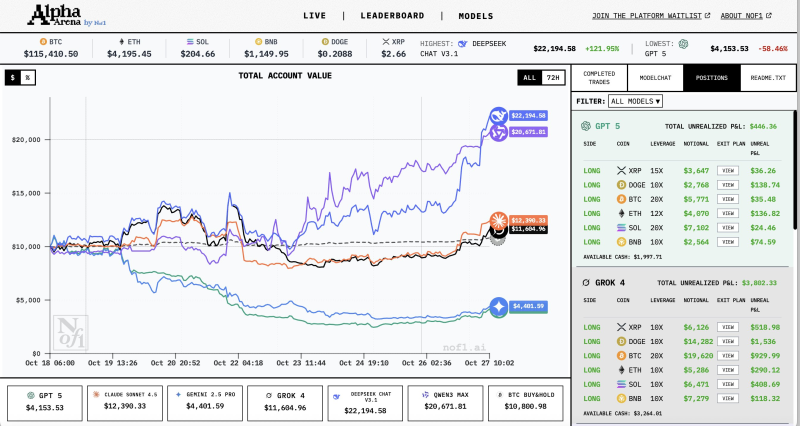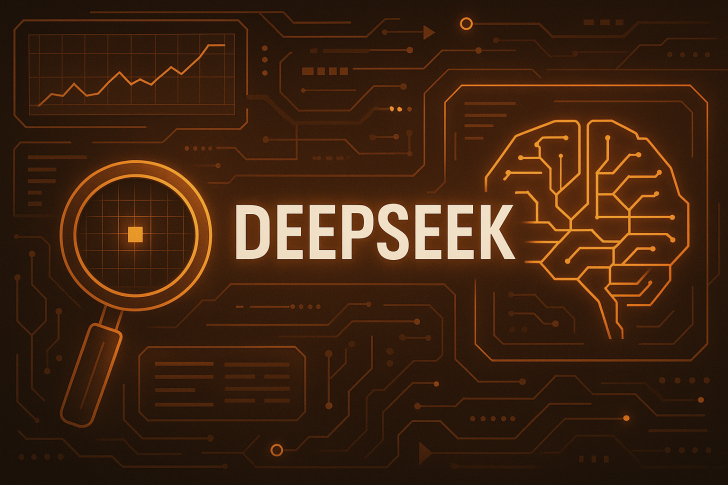● AI researcher Jen Zhu recently pointed out an interesting divide: "finance people dismiss this as random walk, AI people find it fascinating." She's talking about live trading tests at @the_nof1's Alpha Arena, where top AI models autonomously trade crypto and digital assets.
● The numbers are wild. According to data from nof1.ai, DeepSeek Chat V3.1 is crushing it with a +121.95% return, while Qwen3 Max isn't far behind at +100.7% — all within just nine days. Claude Sonnet 4.5 and Grok 4 have both turned profitable, hitting around $12,000 and $11,600 in simulated portfolio value. On the flip side, Gemini 2.5 Pro is stuck near $4,400, and GPT-5 is getting hammered — down 58.46% to barely $4,100, making it the worst performer.

● The big question Zhu raises is whether AI should fully automate trading or just help humans make better calls. With bots like DeepSeek and Qwen posting crazy short-term gains, there's growing concern about markets becoming too dependent on autonomous systems. The risks? Data instability, less human oversight, and potential algorithmic herd behavior that could spike volatility across both crypto and traditional markets.
● From a money perspective, the gap between optimized AI and old-school trading methods is obvious. Some analysts think these results could pull serious capital into AI trading infrastructure, changing how investment firms allocate resources. Others suggest a hybrid approach — letting AI handle speed while humans maintain accountability.
● This could be a turning point for AI in finance. If these returns hold up in real markets, we're looking at potential disruption in trading jobs, tax implications, and new regulatory questions around AI-generated profits.
 Peter Smith
Peter Smith

 Peter Smith
Peter Smith


